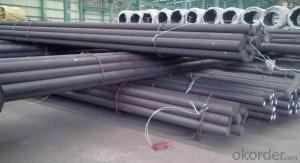Forged Grade c35 steel/1035 1045 1055 1065 Steel Round Material
- Loading Port:
- Shanghai
- Payment Terms:
- TT OR LC
- Min Order Qty:
- 3 m.t.
- Supply Capability:
- 100000 m.t./month
OKorder Service Pledge
OKorder Financial Service
You Might Also Like
Item specifice
Forged Grade c35 steel/1035 1045 1055 1065 Steel Round Material
Details Information of Forged Grade c35 steel/1035 1045 1055 1065 Steel Round Material
| Item | carbon steel bar C35,carbon steel rod,carbon steel shaft | |
| Model No. | Q235B,Q345B,A36,SS330,SS400,SAE1045,Q195,Q215,10#,15#, 25#,30#,1010,1015,1020,1025,1030 | |
| Standard | ASTM,AISI,JIS,DIN,GB,EN | |
| Size | round | Diameter:4mm-800mm |
| Length:1-12m,or as required | ||
| flat | Width:3mm-3000mm | |
| Thickness:0.3mm-200mm | ||
| Length:1m-12m,or as required | ||
| square | Diameter:2mm*2mm-800*800mm | |
| Length:1m-12m,or as required | ||
| angle | Width:10mm*10mm-400mm*400mm | |
| Length:1m-12m,or as required | ||
| hexagonal | Diameter:4mm-800mm | |
| Length:1m-12m, | ||
| Delivery time | Prompt or according to the order quantity. | |
| Trade terms | Payment terms:T/T,L/C,western union | |
| Price terms:FOB,CFR,CIF,EXW | ||
| Package | Standard export seaworthy package, or as required. | |
| Application | Steel bar applies to petroleum,chemical industry,electric power, boiler,high temperature resistant,low temperature resistant, corrosion resistant.Carbon steel bar also can be made accroding to the customer's requirement. | |
| Contact | If you have any question,please feel free to contact me. | |
Chemical Composition of Forged Grade c35 steel/1035 1045 1055 1065 Steel Round Material
| C | Si | Mn | P | S | Cr | Ni | Cu |
| 0.17-0.24 | 0.17-0.37 | 0.35-0.65 | ≤0.035 | ≤0.035 | ≤0.25 | ≤0.25 | ≤0.25 |
| Tensile strength (σb/MPa) | Yield strength (σb/MPa) | Elongation (δ5/%) |
| ≥410(42) | ≥245(25) | ≥25 |
Company Introduction of Forged Grade c35 steel/1035 1045 1055 1065 Steel Round Material
CNBM International Corporation is the most import and export platform of CNBM group(China National Building Material Group Corporation) ,which is a state-owned enterprise, ranked in 270th of Fortune Global 500 in 2015.
With its advantages, CNBM International are mainly concentrate on Cement, Glass, Iron and Steel, Ceramics industries and devotes herself for supplying high quality series of refractories as well as technical consultancies and logistics solution.
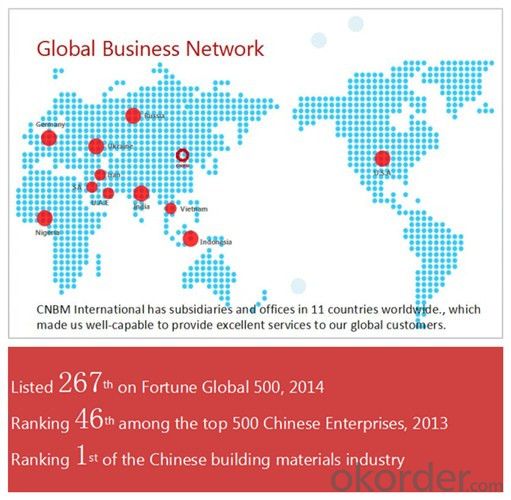
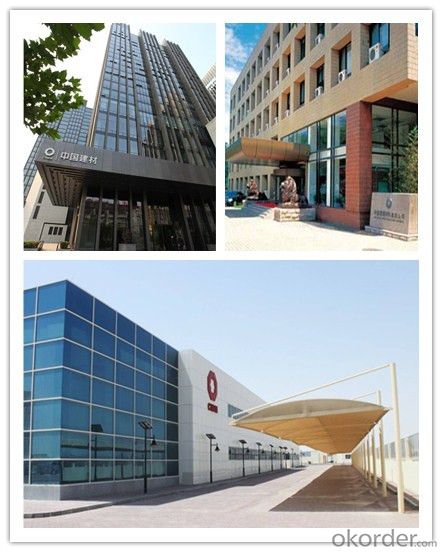
Certificates of Forged Grade c35 steel/1035 1045 1055 1065 Steel Round Material
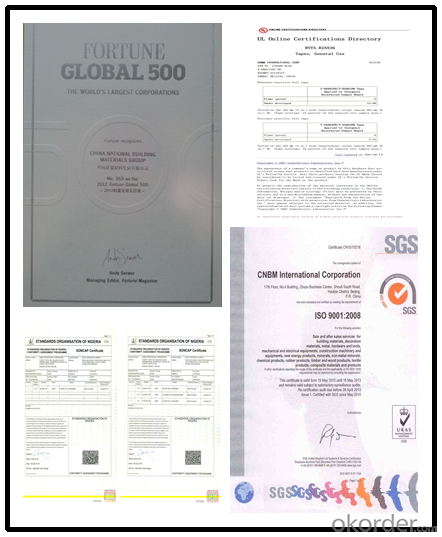
Packaging & Delivery of Forged Grade c35 steel/1035 1045 1055 1065 Steel Round Material
Packaging Detail | Sea worthy packing /as per customer's packing instruction |
Delivery Detail | 15 ~ 40 days after receiving the deposit |
Products show of Forged Grade c35 steel/1035 1045 1055 1065 Steel Round Material
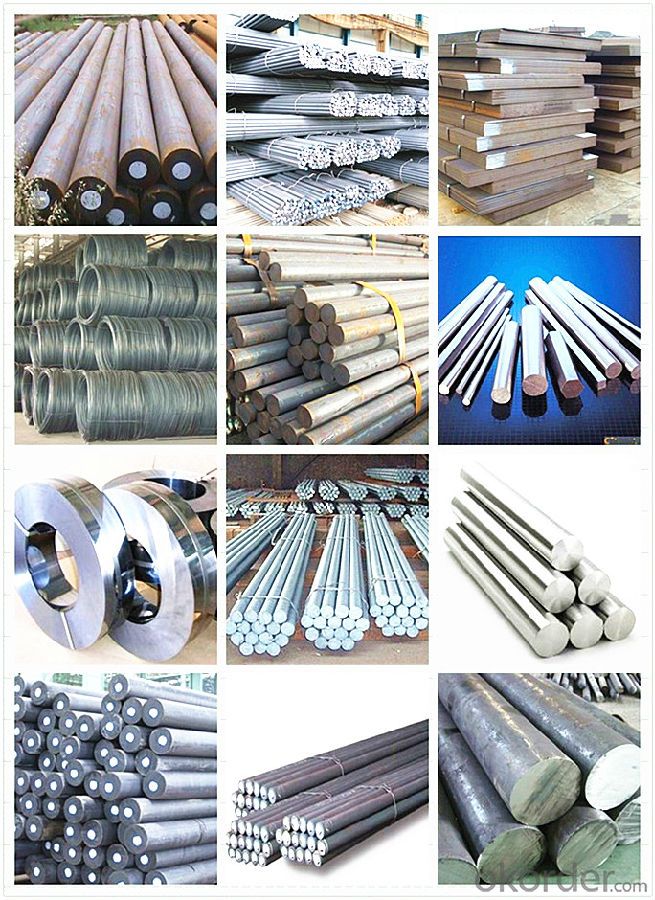
FAQ
Are you a trading company or manufacturer? | Manufacturer |
What’s the MOQ? | 3 metric ton |
What’s your delivery time? | 15-35 days after downpayment received |
Do you Accept OEM service? | Yes |
what’s your delivery terms? | FOB/CFR/CIF |
What's the Payment Terms? | 30% as deposit,70% before shipment by T/T |
Western Union acceptable for small amount. | |
L/C acceptable for large amount. | |
Scrow ,Paybal,Alipay are also ok | |
Why choose us? | Chose happens because of quality, then price, We can give you both. Additionally, we can also offer professional products inquiry, products knowledge train (for agents), smooth goods delivery, excellent customer solution proposals. |
What's your available port of Shipment? | Main Port, China |
What’s your featured services? | Our service formula: good quality+ good price+ good service=customer's trust
|
Where are your Market? | Covering more than 160 countries in the world |
- Q:What are the different renewable energy grades of special steel?
- There are several grades of special steel that are commonly used in the renewable energy industry. These grades are specifically designed to withstand the harsh conditions and requirements of renewable energy applications. One of the most common grades of special steel used in renewable energy is stainless steel. Stainless steel is known for its corrosion resistance properties, which make it ideal for offshore wind turbines or solar panel frames that are exposed to moisture and saltwater. It is also used in geothermal power plants, where high temperatures and corrosive environments are present. Another grade of special steel used in renewable energy is high-strength low-alloy (HSLA) steel. HSLA steel has a higher strength-to-weight ratio, making it suitable for applications that require lightweight structures with high strength, such as wind turbine towers or support structures for solar panels. Furthermore, there is advanced high-strength steel (AHSS) that is commonly used in the automotive industry but can also be utilized in renewable energy applications. AHSS offers excellent strength, durability, and impact resistance, making it suitable for components like blades or gears in wind turbines. Additionally, there is a grade of steel called weathering steel, which is often used in renewable energy applications that are exposed to outdoor elements. Weathering steel forms a protective layer of rust, which prevents further corrosion and eliminates the need for additional coatings. It is commonly used in solar panel support structures, transmission towers, or other outdoor equipment. Overall, the selection of the appropriate grade of special steel for a specific renewable energy application depends on factors such as the type of renewable energy source, the environment in which it will be installed, and the specific requirements of the project.
- Q:How does special steel contribute to the aerospace safety?
- Special steel contributes to aerospace safety in several ways. Firstly, special steel is used in the construction of aircraft components such as landing gear, engine parts, and structural supports. These components need to withstand extreme stress, high temperatures, and corrosive environments, and special steel provides the necessary strength, durability, and resistance to ensure the safety and reliability of the aircraft. Secondly, special steel is utilized in the manufacturing of aerospace tools and equipment. These tools are essential for maintenance, repairs, and inspections of aircraft systems. The high strength and toughness of special steel ensure that these tools can withstand heavy use, enabling efficient and accurate maintenance procedures, ultimately contributing to the overall safety of aerospace operations. Furthermore, special steel is also used in the production of safety-critical fasteners and connectors in aerospace applications. These fasteners play a crucial role in holding aircraft components together, and their reliability is paramount for the safe operation of the aircraft. Special steel's excellent mechanical properties, including high tensile strength and resistance to fatigue, ensure the integrity and security of these fasteners, reducing the risk of component failure and enhancing aerospace safety. Overall, the use of special steel in aerospace applications significantly contributes to safety by providing the necessary strength, durability, and reliability required in critical aircraft components, tools, and fasteners.
- Q:How does special steel perform in high-temperature creep conditions?
- Special steel performs well in high-temperature creep conditions due to its unique composition and properties. It exhibits excellent resistance to deformation and maintains its strength and integrity even at elevated temperatures. The high alloy content and specialized heat treatment processes contribute to its ability to withstand prolonged exposure to extreme temperatures without significant deformation. This makes special steel an ideal choice for applications where high-temperature creep resistance is crucial, such as in power generation, aerospace, and petrochemical industries.
- Q:How does special steel contribute to the automotive racing industry?
- Special steel contributes to the automotive racing industry by providing high-strength and lightweight materials that enhance the performance and safety of race cars. These steel alloys are used in various components, such as engine parts, chassis, and suspension systems, allowing for improved speed, maneuverability, and durability. Additionally, special steel's exceptional heat resistance and ability to withstand extreme conditions make it vital for engines that generate immense power and operate at high temperatures. Overall, special steel plays a crucial role in pushing the boundaries of automotive racing technology and enabling teams to achieve optimal performance on the track.
- Q:What industries rely on special steel?
- Several industries rely on special steel, including automotive, aerospace, construction, energy, and manufacturing. Special steel is known for its exceptional strength, durability, and resistance to corrosion, making it an essential material in these sectors. It is used for various applications such as structural components, machinery parts, tools, pipelines, and turbines, among others.
- Q:What are the environmental impacts of special steel production?
- The environmental impacts of special steel production include air pollution from the combustion of fossil fuels used in the production process, water pollution from the discharge of wastewater containing heavy metals and chemicals, and land degradation from mining activities to extract raw materials. Additionally, the high energy intensity of steel production contributes to greenhouse gas emissions, contributing to climate change.
- Q:What are the different surface hardening techniques for special steel?
- There are several surface hardening techniques that can be used for special steel to enhance its mechanical properties and improve its wear resistance. These techniques include: 1. Case hardening: This method involves introducing carbon or nitrogen into the surface of the steel through diffusion. The steel is heated in the presence of a carbon-rich or nitrogen-rich environment, causing the carbon or nitrogen atoms to diffuse into the surface layer. This process forms a hardened case while maintaining a tough core. 2. Nitriding: Nitriding is a surface hardening process that involves the diffusion of nitrogen into the steel. The steel is placed in a nitrogen-rich environment at elevated temperatures, forming a hardened surface layer with improved wear resistance and corrosion resistance. 3. Carburizing: Carburizing is a process that involves introducing carbon into the surface of the steel. The steel is heated in a carbon-rich environment, allowing the carbon atoms to diffuse into the surface layer. This forms a hardened case with increased hardness and wear resistance. 4. Induction hardening: Induction hardening is a localized surface hardening technique. The steel is heated using an induction coil, and then rapidly quenched. This process results in a hardened surface layer with high hardness and improved wear resistance. 5. Flame hardening: Flame hardening is another localized surface hardening method. The steel surface is heated using a high-temperature flame and then quickly quenched. This technique produces a hardened surface layer with increased hardness and wear resistance. 6. Laser hardening: Laser hardening is a precise and localized surface hardening technique. A laser beam is used to heat the desired area of the steel, followed by rapid quenching. This process forms a hardened surface layer with enhanced mechanical properties. These surface hardening techniques for special steel can significantly improve its durability, strength, and resistance to wear and corrosion, making it suitable for various industrial applications. The selection of the most appropriate technique depends on factors such as the desired hardness level, the complexity of the steel component, and the specific requirements of the application.
- Q:How is special steel used in the construction of buildings and bridges?
- Special steel is commonly used in the construction of buildings and bridges due to its exceptional strength, durability, and resistance to corrosion. This type of steel possesses unique properties that make it ideal for structural components such as beams, columns, and reinforcement bars. Its high tensile strength allows for the creation of large, open spaces in buildings and longer spans in bridges, reducing the need for excessive support columns. Additionally, special steel's ability to withstand extreme weather conditions and corrosive environments ensures the longevity and safety of these structures.
- Q:What are the different surface coating methods used for special steel?
- Special steel can be enhanced and protected from environmental factors using various surface coating methods. These methods include: 1. Galvanizing: Zinc is applied to the steel surface, offering exceptional corrosion resistance. This can be achieved through hot-dip galvanizing or electroplating. 2. Electroplating: A thin layer of metals like chromium, nickel, or copper is deposited onto the steel surface using an electrochemical process. This improves appearance, wear resistance, and corrosion resistance. 3. Powder coating: Dry powder is applied to the steel surface, heated, and fused to create a protective layer. This provides durability, weather resistance, and aesthetic appeal. 4. Thermal spray coating: A heated or molten material is sprayed onto the steel surface, solidifying into a protective coating. Materials like metals, ceramics, and polymers are commonly used. 5. Paint coating: Painting is a widely used method for surface coating. Epoxy, polyurethane, or acrylic paints can be applied to protect against corrosion, chemicals, and UV radiation. 6. PVD coating: A thin film of materials like titanium nitride or diamond-like carbon is deposited onto the steel surface through vacuum deposition. PVD coatings enhance hardness, wear resistance, and appearance. 7. Anodizing: Primarily used for aluminum, anodizing can also be applied to special steel. It involves creating an oxide layer through an electrochemical reaction, improving corrosion resistance and providing a decorative finish. These surface coating methods are crucial for special steel as they enhance protection against corrosion, wear, and environmental factors. This ultimately extends the steel's lifespan and improves its performance. The choice of coating method depends on the specific requirements and desired properties of the steel.
- Q:How does special steel perform in extreme weather conditions?
- Special steel is specifically designed to perform well in extreme weather conditions. It has high resistance to corrosion, making it suitable for use in harsh environments, such as extreme cold or hot temperatures, high humidity, or exposure to saltwater. Special steel also has excellent strength and toughness, enabling it to withstand heavy loads, impact, and vibrations. Overall, special steel exhibits superior performance and durability in extreme weather conditions, making it an ideal choice for various applications, including construction, marine, and aerospace industries.
1. Manufacturer Overview |
|
|---|---|
| Location | |
| Year Established | |
| Annual Output Value | |
| Main Markets | |
| Company Certifications | |
2. Manufacturer Certificates |
|
|---|---|
| a) Certification Name | |
| Range | |
| Reference | |
| Validity Period | |
3. Manufacturer Capability |
|
|---|---|
| a)Trade Capacity | |
| Nearest Port | |
| Export Percentage | |
| No.of Employees in Trade Department | |
| Language Spoken: | |
| b)Factory Information | |
| Factory Size: | |
| No. of Production Lines | |
| Contract Manufacturing | |
| Product Price Range | |
Send your message to us
Forged Grade c35 steel/1035 1045 1055 1065 Steel Round Material
- Loading Port:
- Shanghai
- Payment Terms:
- TT OR LC
- Min Order Qty:
- 3 m.t.
- Supply Capability:
- 100000 m.t./month
OKorder Service Pledge
OKorder Financial Service
Similar products
New products
Hot products
Related keywords
